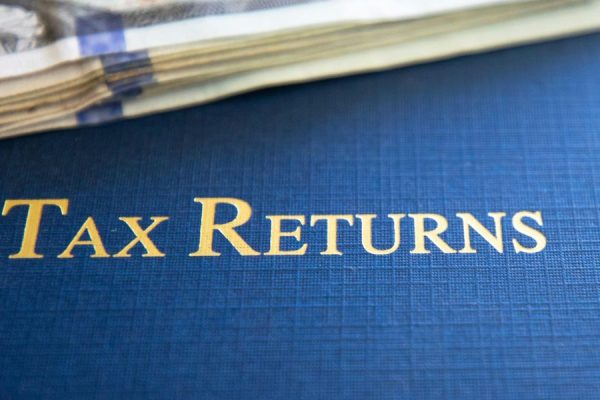Being an independent contractor or freelancer in the UK offers both independence and paperwork challenges. Many expenses incurred during running your business may qualify for deduction before taxes are calculated, helping reduce what HMRC collects in taxes. Here is a practical guide to some of these deductions and instructions on claiming them, along with some tips on keeping records organised.
1. Business essentials
These expenses are among the primary deductions available to freelancers. If your phone or broadband services are being utilised both personally and for professional reasons, make sure their cost is split accordingly to claim only what applies as business expenses at tax time. Maintaining invoices or bank/card statements makes this task simpler.
2. Working from home
If you work from home, claiming expenses can be done two ways. One is using simplified expenses (the flat rates HMRC publishes), which are simple and usually the quickest route, or two is by using itemized expenses, which provides more details.
Calculate your exact proportion of household bills (heating, electricity, Council Tax and mortgage interest/rent for rooms exclusively used for business).
Simplified expenses Use monthly amounts based on how many hours you work from home. It’s an effective choice if you prefer ease over pro rata calculations. Decide on a method which yields greater deductions and stick with it consistently.
3. Travel and vehicle costs
Travel expenses related to meeting clients, attending events, or visiting suppliers is generally tax deductible; however, travel between home and a regular workplace usually isn’t. When deducting vehicle expenses related to business use, you can either:
- Utilise actual costs (fuel, insurance and servicing costs) related solely to business use
- Use HMRC’s approved mileage rates (Approved Mileage Allowance Payments)
Cars and vans, for instance, typically incur 45p per business mile up to 10,000 miles travelled and 25p for every mile thereafter (different rates apply for motorcycles and bicycles). Contractors using their personal vehicle for business trips often find mileage rates the easiest way to calculate expenses. Make sure that a log (with date, purpose and miles travelled), along with any receipts or proof, is kept; HMRC could ask to see these records as evidence.
4. Training, courses and professional development
Training that maintains or enhances skills directly related to your business (for instance, coding courses for developers or tax training for accountants) is usually an allowable cost; however, training intended to switch into another field or trade is usually not. Make sure course invoices reflect how your training fits with current work tasks.
5. Insurance, legal and professional fees
Business insurance (professional indemnity and public liability), accountancy fees for filing your tax return and legal costs directly related to running the business are allowable expenses. If any fees cover both personal and business aspects equally, split the document invoice so as to show its purpose.
6. Marketing and advertising
Web hosting costs, domain costs, online ads, brochures and PR services are legitimate business expenses that freelancers looking to expand their client base may benefit from deducting as legitimate deductions. Keep records of invoices and campaigns as you file this category of expenses.
7. Subcontractors and staffing
Payments made to subcontractors and freelance colleagues are permitted under IRS guidelines. It includes invoices as proof and any PAYE/NIC records if employing staff. When paying genuine freelancers, generally no PAYE will need to be collected, but you should keep evidence of working relationships.
8. Pension contributions (tax-efficient saving)
Contributing to a personal pension not only saves for retirement, but it can also lower tax liability, as these contributions qualify for tax relief. Contributing is particularly useful for self-employed people to decrease exposure to higher tax bands. HMRC even provides ways for them to claim higher-rate relief through self-assessment! However, large contributions should take note of annual allowance limits, as this will prevent overspending on taxes.
Top Tax Deductions for Freelancers and Contractors in the UK
Working independently as a freelancer or contractor in the UK offers both freedom and responsibility in managing one’s own finances. Since freelancers must handle their tax issues independently, it’s imperative that they understand which expenses qualify as allowable deductions against their taxable income.
Understanding your tax deductions goes far beyond saving money; it also keeps your business financially healthy and compliant with HMRC rules. UK taxes allow self-employed individuals to claim for legitimate business expenses ranging from office supplies, software licences and marketing costs and travel costs to insurance premiums, as well as part of household bills if you work from home.
Deductions help lower taxable profits so that when business expenses have been deducted, taxes only fall due on what’s remaining after deduction. Unfortunately, freelancers sometimes overlook valuable reliefs because they either are unaware or fail to maintain accurate records; learning about deductions and keeping detailed documentation are keys for increasing tax efficiency, freeing up cash flow and reinvesting back into your business.
This guide presents freelancers and contractors operating in the UK with some of the best tax deductions and allowances, such as home office expenses, business travel costs, professional fees, pension contributions and lesser-known allowances that can help keep more earnings for themselves while remaining compliant with tax regulations. Deliberating which expenses qualify can assist freelancers to stay compliant while keeping more earnings for themselves.
Final words
Claiming what is legally due isn’t tax avoidance, yet it’s a business practice. Rules vary, and HMRC guidance changes frequently. When making large claims, consult HMRC pages or seek professional assistance from an accountant qualified in tax law and planning. Freelancers and contractors alike can legally reduce tax bills through this strategy while focusing more on expanding their businesses.




